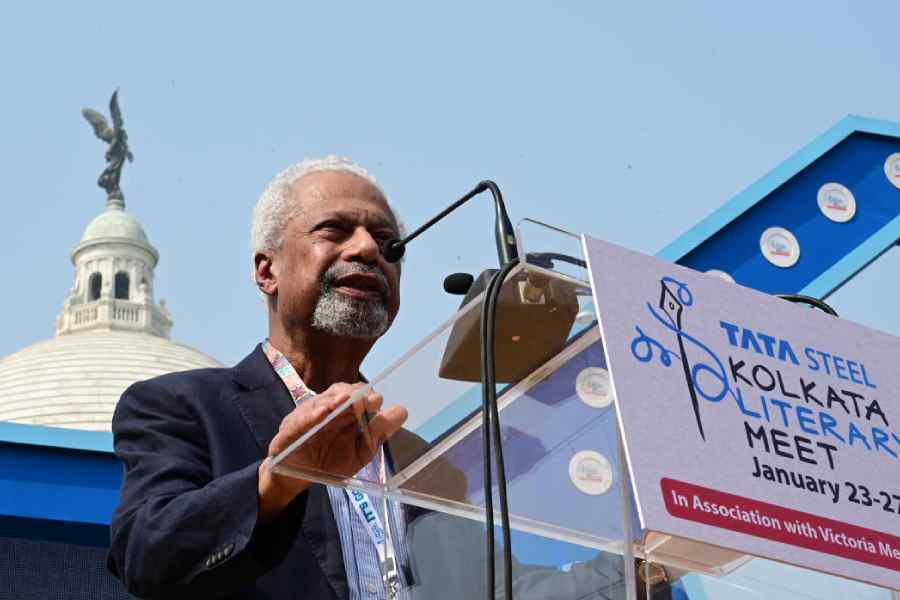Prime Minister Narendra Modi and his government have repeatedly assured the nation that India is breaking free of the shackles of colonialism, 77 years after gaining independence from the British, under their watch. The most recent extension of that argument was made by Mr Modi while consecrating the Ram temple in Ayodhya on January 22 when he spoke of ending the mentality of slavery. Yet, as the Nobel laureate, Abdulrazak Gurnah, pointed out while addressing a literary meet in Calcutta, colonialism — a resilient creature — lives on in multiple overt and insidious ways, even in countries that are formally independent and claim to have broken free from the knots that once held them back. Colonialism’s imprint on conflict and geopolitics runs especially deep. Mr Gurnah, a Tanzanian-British writer and academic who won the Nobel Prize in literature in 2021, cited the examples of the Middle East, Europe and Africa in this context. While Russia’s invasion of Ukraine shows the Kremlin’s imperial mindset, France maintained outsized influence over post-colonial West Africa — a practice known as Françafrique — for decades through the presence of its military forces, control of economic resources, and its role in multiple coups.
But colonial power dynamics are not just perceptible in episodes of open conflict. The very borders in much of Asia and Africa are products of decisions made in European capitals and a source of continuing tensions between neighbours in the Global South. In the Middle East, as Israel wages war on Gaza, Palestinians — victims of occupation, mass displacement and systemic discrimination for decades — rarely get a meaningful seat at the table where regional and world powers try to shape the future of the war. The United Kingdom is engaged in stopping the entry of refugees from countries whose crisis it created as a colonial power, while still plundering the best of their human resources — doctors from Africa, for instance — to overcome shortages in its own system. And several post-colonial nations have imbibed practices and policies that mirror those of former colonial powers. Whether in Indonesia, China or New India, brute force rather than a democratic discourse remains the preferred tool to tackle dissenting sentiments.
In India, recent years have seen a surge in cases filed against critics of the government, from journalists to students to activists, under draconian anti-terror laws designed to deny the accused rights otherwise enshrined in the country’s legal code. This, too, is a legacy of colonialism: Western imperial powers often took recourse to the law to legitimise injustice. Tellingly, the new set of criminal laws that Mr Modi’s government pushed through Parliament in December have retained the essence of the sedition charge, without calling it that. In fact, many scholars have warned that the new laws further widen the ambit of what the State can consider anti-national — the term used by Mr Modi’s government to punish a range of opponents. Many of India’s contemporary challenges — from the backsliding of the democratic ethos to the erosion of pluralism — are the result of a policy that seems to be infused with a polarising ethic — yet another residue of the colonial enterprise. The post-colonial discourse — scholarly, political and civil — must respond to this deepening crisis.










